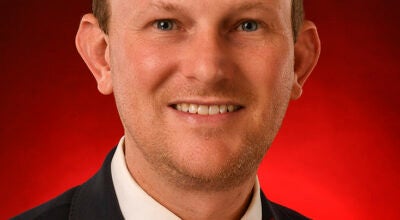A symphony of construction
Published 11:00 pm Friday, May 3, 2013
“Our lives are at their best when centered not upon ourselves but upon babies!”
Cardinal Timothy Dolan made this contention at a gathering hosted by the Chuck Colson Center for Christian Worldview, which brought together evangelicals and Catholics to celebrate religious liberty.
The Colson Center was honoring Dolan for defending religious freedom against the attack posed by the Obama administration’s policy on health coverage for abortion, contraception and sterilization. Though all may agree on the concrete nature of the threat, understanding it is hampered by a dwindling vocabulary with which to discuss it. So Dolan went back to the basics.
Dolan declared that the defining event of the past few months for him was not his first papal conclave but the baptism of his most recent grandnephew, Charlie. He said that he was inspired by “the profound change” he saw in this baby’s mother and father. Rather than “diverse and self-referential” interests, Charlie now dominates “their sleep schedule, their plans, their budget, their conversation, their calendar, their future, their dreams.”
“The human project,” Dolan proposed, “is all about babies! A man and woman are made for babies!”
And culture itself, he said, is “simply humanity’s best effort to protect the baby, the mother, the father.”
He made this contention at the same time that the horrific murder trial of abortionist Kermit Gosnell was going to the jury in Philadelphia. The gruesome details of this trial — Gosnell is accused of killing not only one of his patients, but babies born alive, the victims of botched abortions — have also shed a light on the ugly truths behind late-term abortions.
This reflects a different culture than the one the cardinal spoke of, that’s for sure.
The abortion debate is never direct: We delude ourselves with euphemisms that keep us complacent and complicit; we pretend that a woman isn’t a mother unless she says she is, even as a life that shares her DNA, and the DNA of another human being, develops within her. We try to pretend that a 23-week-old fetus bears no resemblance to a newborn when science and photos show us the truth.
Gosnell has got to mark the end of this.
If culture is all about babies, as the cardinal says, many of our most heated political debates may benefit from confronting the “baby in the room.”
That baby has a dignity that does not come from his or her mother’s will, or his or her dad stepping up to the plate, or a doctor’s signature. It is inherent.
If we’re willing to reconsider the popular understanding of freedom — which all too often is defined down to license — this is all quite liberating. We’re not made for ourselves. We’re not in this alone.
In “How the West Really Lost God,” Mary Eberstadt observes: “(F)amily and faith are the invisible double helix of society, two spirals that when linked to one another can effectively reproduce, but whose strength and momentum depend on one another.”
She concludes: “It appears that the natural family as a whole has been the human symphony through which God has historically been heard by many people — not the prophets, not the philosophers, but a great many of the rest; and the gradual but now recognizable muffling of that symphony is surely an important and overlooked part of the story of how certain men and women came not to hear the sacred music anymore.”
We want that music playing. We need to know it’s there.
Pope John Paul II said that true faith produces culture. The current pope has said, “A believer is essentially someone who goes into an encounter with other believers, or nonbelievers, to give them a hand.”
We need religious liberty because we need people to give us a hand. We need people who see clearly and hear the symphony, who are inspired by the wonder of creation. We need something better for babies and families. We might start with the cardinal’s simple assertion.
(Kathryn Lopez is the editor-at-large of National Review Online www.nationalreview.com.)
She can be contacted at klopez@nationalreview.com.)


